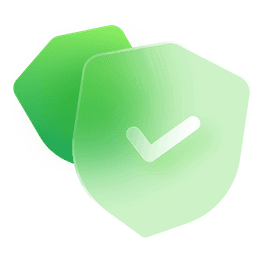Nexus Default Password Scanner
A Default Credential vulnerability is a type of vulnerability that is most commonly found to affect the devices like modems, routers, digital cameras, servers or web-based configuration or administrative interfaces having some pre-set (default) administrative credentials to access all configuration settings.
Short Info
Level
High
Single Scan
Single Scan
Can be used by
Asset Owner
Estimated Time
10 sec
Scan only one
Domain, Ipv4
Toolbox
-
What is Nexus and for what purpose Nexus software used for?
The Nexus is a product that has been designed to serve as a bridge between mobile devices and personal computers. This innovative product has been developed by Google and manufactured by numerous vendors such as LG, Motorola, Huawei, and Asus. The Nexus is a revolutionary device that is powered by Android OS and comes loaded with a stock of customizable features. It is commonly used as a tool for people who require a device that can run multiple applications seamlessly, especially when on-the-go. The Nexus has been designed with a sleek body and powerful hardware, making it an ideal device for gaming, streaming videos and browsing the internet. The Nexus has been particularly helpful for business people as it allows easy access to email, calendar, and other productivity tools. Additionally, the device boasts of a long battery life, making it a go-to device for travel and outdoor activities. Overall, the Nexus is a cutting-edge device that offers a wide range of functionalities engineered to make your life easier.
What kind of cyber security vulnerabilities does using the default username and password of Nexus software cause?
When it comes to cyber security, few things are as important as using strong and unique usernames and passwords. Unfortunately, many people and organizations continue to rely on default options, which can pose significant risks. This is especially true in the case of the Nexus platform, which is often used for communication and data sharing across networks. When default usernames and passwords are used, cyber criminals can easily gain access to sensitive information and wreak havoc on a system. To prevent this from happening, it's crucial to create secure login credentials and regularly update them. By taking this important step, Nexus users can significantly reduce their cyber security risks and protect themselves and their organizations against potential threats.
What effects would a cyberattack on Nexus software exploiting the use of a default username and password have?
The use of default usernames and passwords in a Nexus software open to internet access can expose a significant security risk that cannot be overlooked. Cyber attackers can exploit these vulnerabilities by using readily available tools to gain unauthorized access to an organization's sensitive data, such as sensitive client information, financial records or intellectual property. The consequences can be costly and even catastrophic, ranging from financial losses, reputational damage, legal implications, and regulatory fines, among other things. Simply put, failing to take proactive security measures like changing default usernames and passwords leaves your business at the mercy of cyber attackers, and that's simply not an option in today's digital age.
What kind of cyber security vulnerabilities does the fact that the management interface of Nexus software is accessible from the internet create?
With the increasing reliance on technology in today's world, cyber security has become a major concern for individuals and businesses alike. When it comes to opening up an application to external access over the internet, there are several vulnerabilities that need to be addressed. Firstly, without proper security measures in place, unauthorized users may be able to gain access to sensitive data. In addition, if the application has not been regularly updated with the latest security patches, it may be vulnerable to cyber attacks such as phishing, malware, and ransomware. It is important to implement strong authentication protocols and ensure that all users are regularly updating their passwords. By taking these precautions, companies can minimize the risk of cyber attacks and keep their data safe and secure.
Conclusion
Cybersecurity threats have never been more prevalent than they are today. With the increase in remote work and online activities, it's crucial to ensure that your digital assets are protected. That's where Securityforeveryone.com comes in. Thanks to its advanced features, the platform can detect vulnerabilities like the Nexus application, easily and quickly providing suggestions to website owners on how to eliminate cyber threats. By using this pro platform, readers of this article can learn how to continuously scan thousands of similar issues affecting their digital assets and how to stay one step ahead of hackers. Protecting your online presence has never been easier, thanks to Securityforeveryone.com.

control security posture
